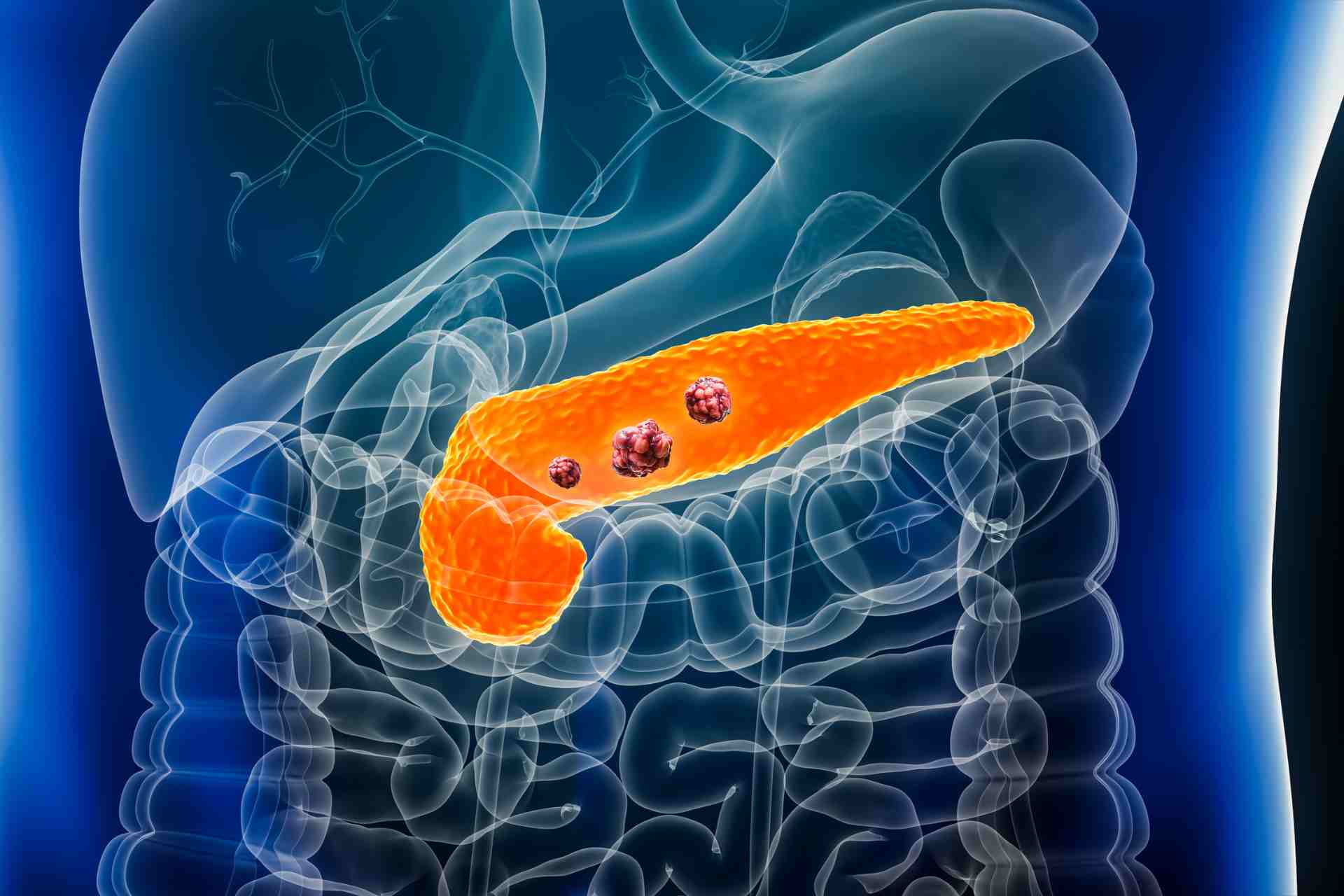What is already known
Less than half of patients respond to chemotherapy for pancreatic ductal adenocarcinoma or PDAC, the most common form of pancreatic cancer. In people with melanoma, the gut microbiota has been shown to influence a person’s response to immunotherapy — a treatment that uses the body’s own immune system to fight cancer. But whether and how gut microbes affect the efficacy of treatments for PDAC remains unclear.
What this research adds
Researchers assessed 30 PDAC patients and found that the microbial metabolite indole-3-acetic acid (3-IAA) is enriched in people who respond to treatment. Transferring the gut microbiota from responders or administering oral 3-IAA increases the efficacy of chemotherapy in a mouse model of PDAC. The microbial metabolite induces the release of reactive oxygen species (ROS) by neutrophils through a reaction mediated by the enzyme myeloperoxidase. ROS are toxic products that downregulate autophagy — a process during which old and damaged cell parts are degraded and reused. Reducing autophagy in cancer cells ultimately blocks their proliferation.
Conclusions
The findings suggest that the microbial metabolite 3-IAA could help to treat PDAC, highlighting the potential of nutritional interventions during the treatment of patients with this aggressive cancer.
The most common form of pancreatic cancer, pancreatic ductal adenocarcinoma or PDAC, is expected to be the second most deadly cancer by 2040. Now, researchers have found that the microbial metabolite indole-3-acetic acid (3-IAA) is enriched in PDAC patients who respond to treatment. The metabolite, in combination with chemotherapy, can ultimately kill cancer cells.
The findings, published in Nature, suggest that 3-IAA could help to treat PDAC, highlighting the potential of nutritional interventions during the treatment of patients with this aggressive cancer.
Chemotherapy is the classic treatment for PDAC, but only less than half of patients respond to it. In people with melanoma, the gut microbiota has been shown to influence a person’s response to immunotherapy — a treatment that uses the body’s own immune system to fight cancer. However, it’s unknown whether and how gut microbes affect the efficacy of treatments against PDAC.
To address this question, researchers led by Nicola Gagliani and Joseph Tintelnot at the University Medical Center Hamburg-Eppendorf assessed 30 PDAC patients, some of whom did not respond to treatment.
Boosting treatment efficacy
The researchers found that 3-IAA was enriched in PDAC patients who responded to treatment. Out of the 15 microbial producers of 3-IAA that the team analyzed, Bacteroides fragilis and Bacteroides thetaiotaomicron were increased in responders. Both bacterial species were also able to produce 3-IAA in a test tube.
Transferring gut bacteria from responders to a mouse model of PDAC increased the efficacy of chemotherapy. Similar results were obtained by supplementing mice with 3-IAA, the researchers found.
Because bacterial species in the gut can synthesize 3-IAA from the amino acid tryptophan, the team tested whether a tryptophan-rich diet could also result in an anticancer effect. They found that such a diet, in combination chemotherapy, increased the treatment’s efficacy. Other tryptophan-derived metabolites did not elicit the same effect.
Killing tumors
Immune-cell profiling revealed that 3-IAA was linked to a group of immune cells called neutrophils. These cells are known to be involved in cancer proliferation. The researchers found that 3-IAA induces the release of reactive oxygen species (ROS) by neutrophils through a reaction mediated by the enzyme myeloperoxidase.
ROS are toxic products that downregulate autophagy — a body’s process of degrading and reusing old and damaged cell parts. Reducing autophagy in cancer cells ultimately blocked their proliferation, the researchers found. What’s more, the team observed a correlation between the levels of 3-IAA and the efficacy of therapy in two groups of patients with PDAC.
“Our findings have the potential to be transformative for the treatment of PDAC and other cancer types such as colorectal cancer,” the researchers say. The work, they add, “will trigger the development of studies that address the effects of microbiota-derived metabolites on the ROS-autophagy axis in response to chemotherapeutic treatments.”









